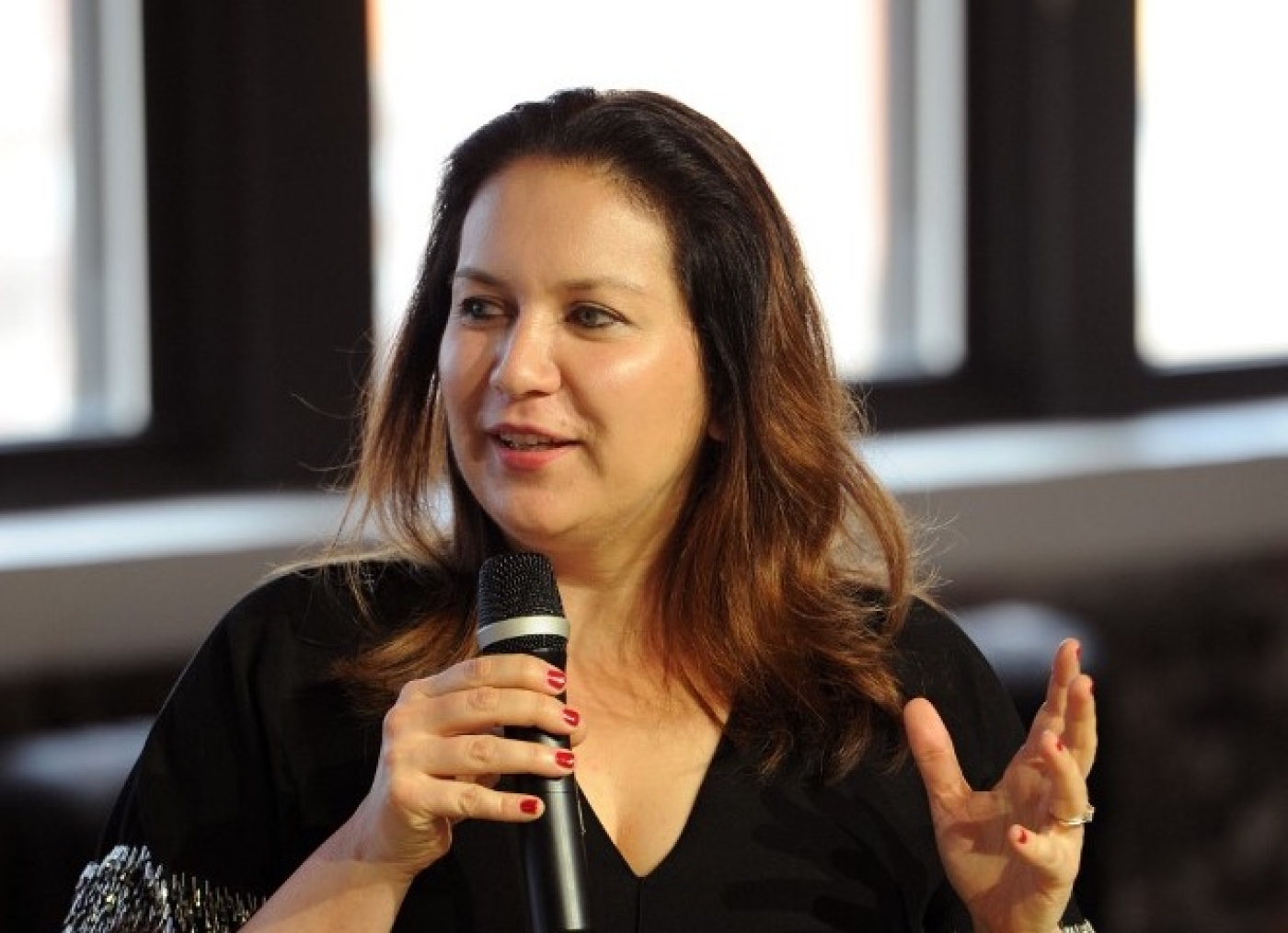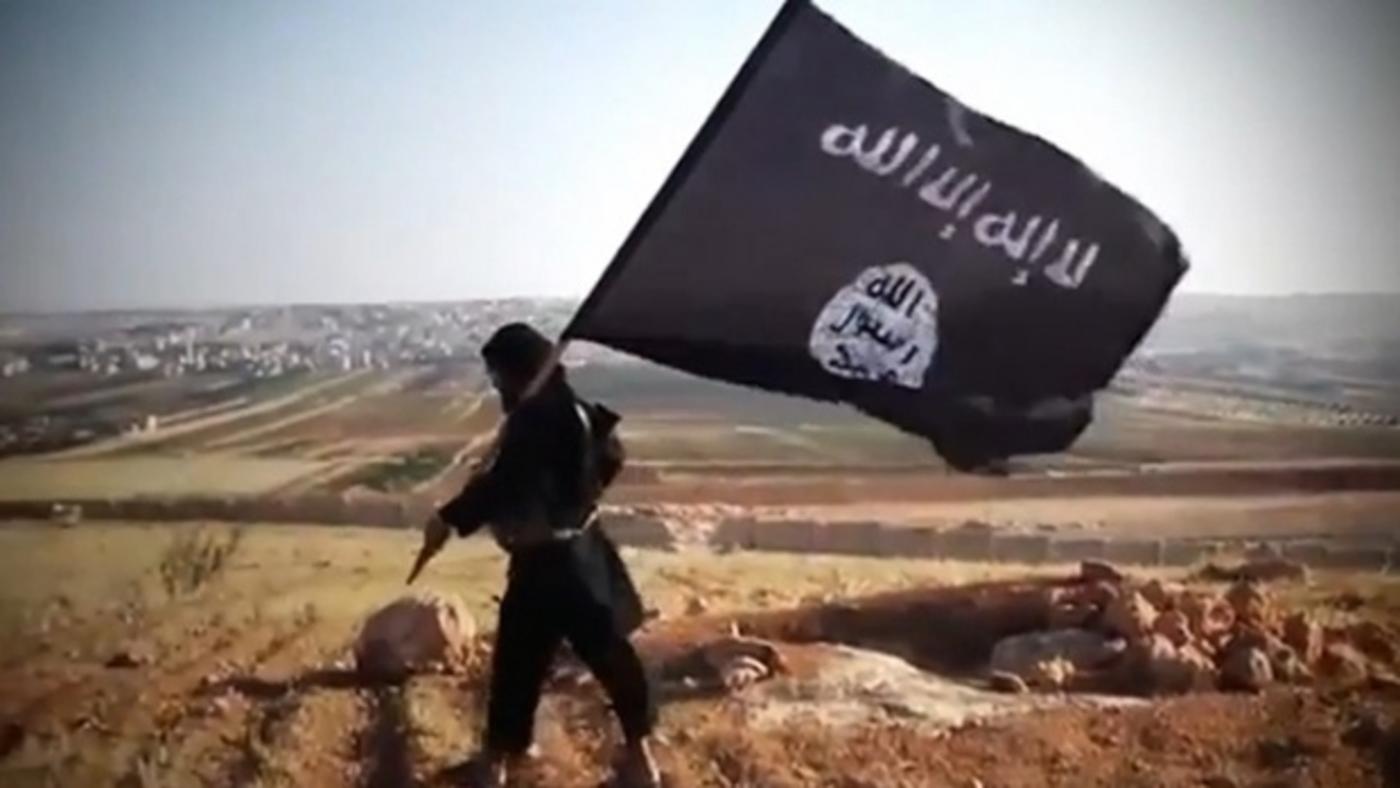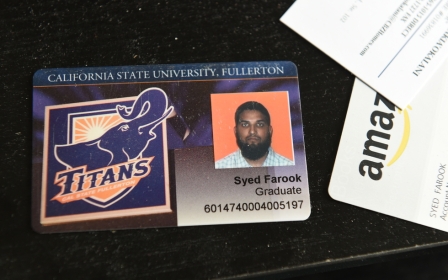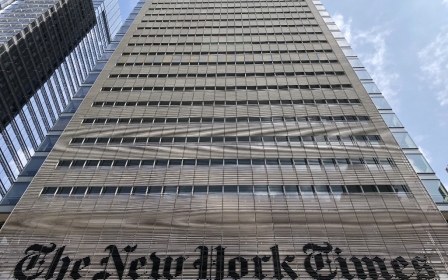
Caliphate: How the New York Times' Islamic State scoop unravelled
One of the most consequential US media scandals in recent years ultimately ended with a whimper. After a two-month internal investigation, the New York Times last month acknowledged that its blockbuster podcast, Caliphate, was based on a hoax.
But what should have been an assessment of the deep-seated problems that led to this debacle left major issues unaddressed - perhaps because they required facing too many unpleasant truths about how the paper has handled stories at the nexus of Islam, the Middle East and terrorism. Perhaps also because too many names on the newspaper’s masthead were implicated in Caliphate’s implosion.
At the core of the Times’ response were excuses, rather than a recognition of the systemic biases and blind spots in its coverage of Islam and the Middle East that caused the fiasco
On 18 December, the Times admitted that key parts of Caliphate fell short of its "standards of accuracy” after it concluded that its key source, Shehroze Chaudhry, a 26-year-old Pakistani Canadian man, had fabricated his account of travelling to Syria and joining the Islamic State (IS).
The result of the internal investigation included a podcast episode, an editor’s note that now precedes Caliphate, a roundup by Times media reporters and an in-depth investigation into Chaudhry’s multiple deceptions. The lead reporter on the podcast, Rukmini Callimachi, whose star rose with her coverage of al-Qaeda and IS, was reassigned.
Yet, at the core of the Times’ response were excuses, rather than a recognition of the systemic biases and blind spots in its coverage of Islam and the Middle East that caused the fiasco. While it admitted that the problems with the podcast reflected an “institutional failure”, the Times did not apologise for the damaging role the hugely popular audio series had in shaping policy in Canada.
Stay informed with MEE's newsletters
Sign up to get the latest alerts, insights and analysis, starting with Turkey Unpacked
When the podcast painted a picture of a murderous terrorist roaming the country’s streets, the opposition in Canada was furious. The political fallout effectively ended the debate over the repatriation of former IS members and their families. The lack of reckoning by the Times with the potential harm its false reporting caused raises questions about whether the newspaper's primary concern was the damage to its reputation.
The Times concluded that there was not enough scrutiny of the reporting for the podcast because the newspaper was new to audio. But it’s clear the journalistic failings extended beyond the podcast. On the same day it made this statement, the Times appended editor’s notes to two of Callimachi’s articles from 2014 and 2019 after a review found significant problems.
Terrorism hoax
The downfall of Caliphate began in September, when Canadian authorities charged Chaudhry with perpetrating a terrorism hoax based on interviews he gave to journalists, including the Times. Chaudhry, who went by the name Abu Huzayfah, was the main subject of Caliphate.
After a lengthy investigation, Canadian authorities could not verify key parts of Chaudhry’s story. A Times investigation after his arrest reached the same conclusion. Chaudhry likely never went to Syria, joined IS or killed anyone, authorities say. He was charged on the grounds that his interviews sparked “public safety concerns amongst Canadians”. He is set to appear in an Ontario court later this month.
Early on in Caliphate, Callimachi expressed frustration that after interviewing a number of IS fighters over the years, she had never found someone willing to admit to their crimes. In Abu Huzayfah, she thought she had finally found that person.
It turns out that fear is an alluring and irresistible storyline. Caliphate had a narrative, with Callimachi and Abu Huzayfah playing starring roles. It was a narrative about gratuitous Muslim violence, to which Abu Huzayfah would finally give carnal details.
In an interview after the retraction, Times executive editor Dean Baquet acknowledged: “We fell in love with the fact that we had gotten a member of ISIS who would describe his life in the caliphate and would describe his crimes.” Callimachi and her audio producer, Andy Mills, pushed ahead with the podcast, despite knowing that Chaudhry made up key parts of his story. The allure of this narrative led the reporters to miss multiple red flags.
Faulty timeline
During their reporting, the team found that Chaudhry had lied about the timeline of when he travelled to Syria, but in response, they put together an alternate timeline that satisfied them. Despite discovering these deceptions before releasing Caliphate, they built an entire podcast around him anyway.
They relied on the word of two unnamed American intelligence officials who told them that Chaudhry was on the US no-fly list and had joined IS, but this should not have been used as evidence without further corroboration, as intelligence officials are not infallible.
In an interview about the Caliphate retraction, Baquet said the no-fly list was one of the reasons the Times was duped, explaining that it’s “not so easy to get on”, which is demonstrably untrue, with lawsuits alleging that babies and toddlers have been added to it.
In an interview with a Canadian outlet a month after Caliphate's release, Chaudhry denied that he had killed anyone. But Callimachi was convinced that she had caught Chaudhry in a special window of time before Canadian authorities were on to him.
Two and a half years later, shortly after Chaudhry’s arrest, Callimachi and the Times tried to claim that they had built “narrative tension” into the podcast, but that response fell flat, since the only doubt they sowed was about the timeline of when he went to Syria, not the substance of his account.
Additionally, Callimachi questioned whether Canadian authorities charged Chaudhry with perpetrating a hoax because they were unable to collect the necessary evidence to charge him. Such defensiveness is perhaps understandable from the lead reporter on a big story, but the Times’ period of introspection led to a response with multiple problems.
The 'ISIS Files'
There was a backlash against Callimachi and the Times in 2018 after she took more than 15,000 internal IS documents out of Iraq without permission from Iraqi authorities, which the newspaper later published as the “ISIS Files”. The documents were also featured throughout Caliphate. She and the Times were criticised for not redacting some of the documents to protect Iraqis’ names and personal information, including that of minors.
Callimachi’s decision to take these documents out of the country raised legal questions about the ethics of removing important historical documents from a war-torn country. But the problems went beyond Caliphate and some of Callimachi’s colleagues have said that their attempts to warn their managers were futile.
The Caliphate podcast overemphasises religious ideology, while stripping the group's founding and rise from the geopolitical context of Iraq
A Syrian journalist who helped to report a story for Callimachi that was published in 2014 (one of the articles recently corrected) said his warnings about the credibility of a source she relied on were dismissed. “With Rukmini, it felt like the story was pre-reported in her head and she was looking for someone to tell her what she already believed, what she thought would be a great story,” Karam Shoumali told the Times.
As the Washington Post’s Erik Wemple reported, another colleague reportedly told editors at a meeting to discuss the Caliphate retraction: "You discouraged people from using the fire alarm, and when some of us did use the fire alarm anyhow, we found the alarm was not connected to anything."
For her part, Callimachi released a statement on the day of Caliphate’s retraction saying: "I am fiercely proud of the stories I have broken on ISIS and its crimes against humanity," and apologised for "what we missed and what we got wrong."
The Caliphate implosion and Callimachi’s track record draw attention to a double standard in journalistic rigour and professionalism when it comes to covering the Middle East and the terrorism beat.
After the 2017 Las Vegas mass shooting, Callimachi recklessly speculated, based on unverified claims in IS publications, about the possibility that the shooter, Stephen Paddock, had converted to Islam and carried out the shooting at the behest of IS. That she was allowed to baselessly speculate on social media demonstrates that professional standards often don’t apply when it comes to the terrorism beat.
Lazy stereotyping
In a revealing answer for a Reddit AMA (Ask Me Anything) in which Mills and Callimachi participated after the release of the podcast, Mills was asked to name the biggest misconception concerning IS. He responded that in the West, it was “that belief and religion play no role”.
I’m not sure what “West” he was referring to. Has there not been extensive public discussion of the various “problems” with Islam, Muslims and the Muslim world since 9/11? One of the two great US parties has made massive political hay for years by repeating ad nauseum, publicly and provocatively, that “we” need to name the problem: “radical Islamic terrorism”.
Callimachi’s reporting on IS fed and fed off of this prurient fascination with “Islam and violence”. The Caliphate podcast overemphasises religious ideology, while stripping the group’s founding and rise from the geopolitical context of Iraq, a country that was destroyed by the 2003 US invasion and occupation, which destabilised the entire region.
A leitmotif of Callimachi’s work is that IS and other jihadist groups are a legitimate - and perhaps revealing - manifestation of Islam. By Callimachi’s count, 40,000 Muslim foreigners joined IS, which in a religion of 1.8 billion is a statistically insignificant number. Yet, she devotes much of her reporting on the group to describing, explaining and at times acting as a borderline stenographer for what amounts to a murderous cult’s theological beliefs and justifications.
The lazy stereotyping allowed when reporting on “the region”, identified decades ago by Edward Said, rears its head in Callimachi’s analysis (as well as those of too many other major reporters). In an interview with NPR in 2015, she said that parents supporting their daughters who were raped was unusual in the Middle East, or “this part of the world”. What evidence is there of this? Maybe she could speak to the Iraqi families whose daughters were raped by American soldiers to see whether they support their daughters.
Even if Callimachi wanted to, however, she would not be able to. Although much of her most high-profile work is based on Arabic-language documents, Callimachi does not speak or read Arabic.
This dismissive attitude towards the region is typical: wringing hands over its cultural backwardness and placing its majority religion at the centre of discussions on violence, instead of asking what happens to people subjected to decades of sanctions, oppression, occupation and the destructive power of the US military. This trope in journalism is so ingrained that most people don’t even notice it.
A study in contrasts
In the editor’s note preceding the Caliphate podcast, there’s no mention of the word “retract”. Given how much Abu Huzayfah’s story figured into the podcast, it is a strange decision not to use this word when the tainted character is mentioned in all but one episode (the ninth chapter, which itself raises ethical questions, as when Callimachi asked a Yazidi girl to participate in a call with her alleged rapist to confirm his voice. Would this tactic be acceptable in the US on such a sensitive story involving minors?)
We've been here before. In the lead-up to the Iraq War, the Times laundered unverified propaganda from Iraqi opposition members and US intelligence and placed it prominently on the front page
The lack of a clear retraction stands in stark contrast to other journalistic case studies, including the Atlantic’s recent retraction of a long read about wealthy Connecticut parents trying to ensure their kids’ admission into elite universities through niche sports. After the Atlantic discovered that the author, who had a history of plagiarism two decades earlier, had fabricated key details or made mistakes that needed correcting, the magazine retracted the piece and said it could not stand by it.
In contrast, the Times called Callimachi a “powerful reporter”, though the damage her podcast caused is undeniably greater than any fallout from the Atlantic article.
The most the Times seems willing to do is reassign Callimachi, even though she had already begun reporting on stories beyond the terror beat before the podcast’s implosion, including a high-profile deep dive into Breonna Taylor’s death in Louisville during a police raid in March 2020.
In the fallout over the Caliphate saga, the Times returned the Peabody Award it won for the podcast and withdrew its entry for the Pulitzer Prize from consideration (it had been given a “finalist” citation).
Will it happen again?
Reporting about Arabs, Muslims and the Middle East, especially sensationalistic stories, is believed because it often confirms readers’ worst biases and pre-existing beliefs. We have become so inured to framing that pathologises Arabs and Muslims that we don’t even notice it. But there’s also a fear to publicly critique a reporter from a hallowed institution, which explains why the Times not only gets away with such framing time and again, but seems to encourage it from its biggest stars.
We’ve been here before. In the lead-up to the Iraq War, the Times laundered unverified propaganda from Iraqi opposition members and US intelligence and placed it prominently on the front page of the newspaper, helping to sway public opinion in favour of the war.
In its tepid apology for such reporting in May 2004, the Times wrote: “But we have found a number of instances of coverage that was not as rigorous as it should have been. In some cases, information that was controversial then, and seems questionable now, was insufficiently qualified or allowed to stand unchallenged. Looking back, we wish we had been more aggressive in re-examining the claims as new evidence emerged - or failed to emerge.”
It seems like the Times has once again failed to take away the right lessons from this debacle, which means it can - and likely will - happen again.
The views expressed in this article belong to the author and do not necessarily reflect the editorial policy of Middle East Eye.
Middle East Eye delivers independent and unrivalled coverage and analysis of the Middle East, North Africa and beyond. To learn more about republishing this content and the associated fees, please fill out this form. More about MEE can be found here.









